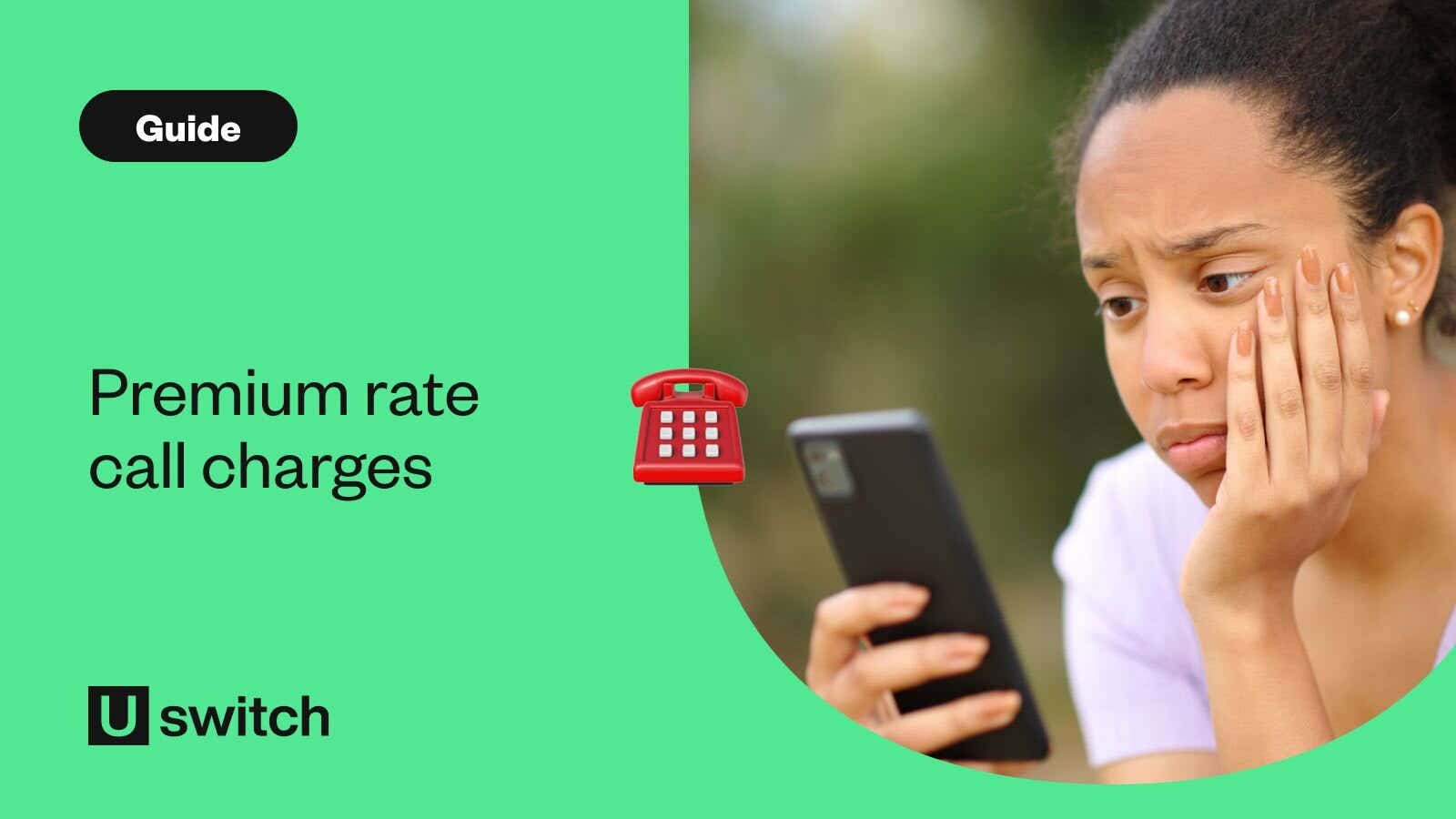Understanding premium rate and customer service numbers


In the past, it’s been all too easy to rack up unexpectedly high charges when ringing up call centres, government departments, banks or directory enquiries from a mobile phone.
The high price of contacting call centres often made consumers wary of calling companies’ support lines to get the help they need, leaving them to suffer in silence.
To improve things, Ofcom introduced regulations in 2015 intended to make call costs for non-geographic numbers and premium rate service numbers more transparent.
Different types of premium rate numbers
There are two main types of numbers that carry an additional charge, and they're not all technically 'premium rate' numbers. Here are the main differences between the two.
1. Non-geographic numbers (also called service numbers)
'Non-geographic numbers’ is an umbrella term that refers to the fact that these telephone numbers don’t start with a code that tells you where in the UK you’re calling.
That’s in contrast to standard numbers that feature area codes, such as 020 for London, or 0161 for Manchester.
Non-geographic numbers are those you usually have to call to get in touch with places like call centres for banks or mobile phone networks' customer support services. The charges for calling these services can vary.
It's for this reason that some are also referred to as 'service numbers', in the sense that you're ringing for a 'service' from a company or utility. These numbers usually start with the prefixes 09, 084 or 087.
2. Premium rate numbers
Actual premium rate numbers, on the other hand, are a subset of numbers under the wider banner of ‘non-geographic’ numbers. They start with the prefixes 09, 118, 0871, 0872 and 0873.
They’re often used for services such as weather information or for lotteries and competitions, and they’re described as ‘premium rate’ because they’re far from cheap to call.
The most expensive premium rate numbers cost up to £3.60 per minute (and sometimes an additional fee just for connecting) and even the cheapest cost about 75p per minute.
Regulations for premium and service numbers
On 1 July 2015, major changes to the regulations for non-geographic numbers came into force.
Beforehand, only if you were calling from a BT landline could you be sure how much it costs to call a non-geographic number / premium rate number.
If you were calling from a mobile phone, you were forced to take a chance and usually only found out how much the call cost afterwards.
What the new rules changed
Under the new rules, mobile phone networks are obliged to clearly print the price of non-geographic calls on bills, customers' contracts and anywhere their customer support contact number appears. Or more specifically, they'll have to print the 'access charge' that applies.
What they mean by ‘access charge’ and ‘service charge’
The term 'access charge' came into being because Ofcom’s new regime also split the cost of calling a premium rate number into two parts. These were:
- The price it costs to call the service provider (i.e. the business you’re calling). This is referred to as the ‘service charge’ and is set by the service provider.
- How much your network is charging to connect the call. This is referred to as an ‘access charge’.
What the message actually says
In the past, the message that appeared next to a premium rate number would read: “Calls cost Xp per minute from a BT landline. Calls may vary from other landlines and calls from mobiles may cost considerably more.”
Since July 2015, the message next to premium numbers has changed to: “Calls cost Xp per minute, plus your phone company’s access charge.”
Did they set a cap on premium rate number charges?
In the last of the changes that came into force, the regulations also set a cap on the cost of calling non-geographic and premium rate numbers.
However, nowadays most phone networks will set their own cap for calling premium rate numbers. The cap is usually £40 per call, though some services, like O2, allow you to set a zero spend cap on your line if you want, meaning you wouldn’t be able to make any chargeable calls at all.
Identifying non-geographic numbers and their charges
The exact cost of many premium rate numbers will depend on your network or service provider, but there are some broad rules.
084, 087, 09 – the service numbers
Non-geographic numbers that are also known as ‘service numbers’ are those that start with 084, 087 and 09, and they’re frequently the most expensive, depending on your network. These are the numbers that include both a service charge and an access charge.
118 – for directory enquiries
Numbers that start with 118 are premium numbers reserved for directory enquiry services. The premium rate number service charge depends on the service, but as of April 2019, 118 companies are not allowed to charge more than £3.65 per 90 seconds of a call.
In addition, the service charge must be clearly displayed wherever the phone number is advertised or promoted.
The access charge for calling a 118 is set by your phone network, and it can range anywhere from 8p to 67p per minute.
03 - UK-wide non-geographic numbers
Numbers that start with 03 are non-geographic numbers that are charged at the same rate as the geographic numbers that start with 01 and 02. These were introduced in 2007 and provide companies with an alternative to the potentially expensive 08 numbers.
0800 numbers - the freephone numbers
And finally, numbers that start with 0800 or 0808, also called ‘freephone’ numbers are, as the name suggests, free to call from landlines, mobiles and even payphones. This means that the company receiving the call pays the cost of the call.
Impact of 2015 rule changes
Ofcom predicted that the rules would be a catalyst for call rates for non-geographic numbers to fall substantially.
The regulator said that with consumers empowered with information about the cost of service calls, many businesses would switch to numbers with the prefix ‘03’, which are still non-geographic numbers but are by some distance the cheapest type to call.
If you’re calling from a pay-as-you-go phone, 03 numbers are priced in line with standard calls you make on your mobile. If you’re on a pay monthly contract, calls to 03 numbers are included in your monthly allowance of call minutes. So won’t cost you any extra.
Exempt UK locations
The sole UK locations that are exempt from the rules are the Channel Islands and the Isle of Man. This means that most calls to these locations are not part of a network’s contract, so a closer inspection of the fine print is required if you wish to place a call there.
Looking for a mobile phone plan? Read our guide to mobile phone tariffs here: Mobile phone tariffs explained. Or, you can check out this link for more Uswitch guides.